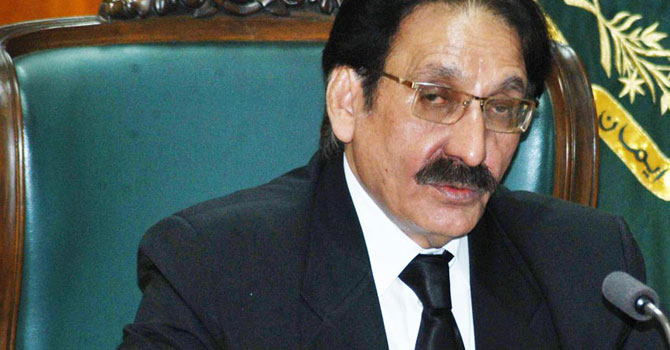
QUETTA: The Supreme Court on Thursday ruled that the girls and the tribal elders involved in the Dera Bugti wani incident be presented before it and the case be thoroughly investigated, DawnNews reported.
The court issued the ruling during the hearing in the suo motu notice of a jirga which was reportedly held in Dera Bugti district’s Bakar area and had decided that 13 girls be married under the custom of ‘wani’ to resolve a feud between two groups of the Masuri tribe.
A three-judge bench comprising the chief justice, Justice Khilji Arif Hussain and Justice Jawwad S. Khawaja was heard the case at the apex court's Quetta registry.
Earlier during the hearing, Justice Khawaja remarked that until all those involved in the incident did not appear before the bench, the matter would not resolve.
Justice Khawaja moreover stated that no one should be made a victim of harassment.
Addressing Sarfaraz Bugti, a cousin of MPA Mir Tariq Masuri who allegedly chaired the jirga, Chief Justice Iftikhar said that if he had any evidence to prove his allegation that the jirga that had decided on the wani had taken place, he should furnish it before the bench.
Bugti said the incident had happened a month ago and that MPA Masuri was an influential man.
He moreover said that he could also name the tribal elders who were present at the jirga.
However, Advocate General Balochistan Amanullah Kinrani said there was no information that any such incident had taken place.
The advocate general requested the bench to quash the case, adding that, there was no evidence available.
Subsequently, the bench ruled that the girls and the tribal elders in question be presented before it and the case be thoroughly investigated.
The bench adjourned the hearing to Nov 9.
Wani is the custom of giving females in marriage by an offending party to the males of the victim party as consideration of compromising offences. The tradition had been existed for centuries in the Khyber Pakhtunkhwa province, in Balochistan and in some parts of Sindh under different names.
The Prevention of Anti-Women Practices Act, passed in 2011, criminalised the practice, stating: “Whoever gives a female in marriage or otherwise compels her to enter into marriage, as ‘badla-e-sulh’, wanni, or swara or any other custom or practice under any name, in consideration of settling a civil dispute or criminal liability, shall be punished with imprisonment of either description for a term which may extend to seven years but shall not be less than three years and shall also be liable to fine of five hundred thousand rupees.”














































Dear visitor, the comments section is undergoing an overhaul and will return soon.